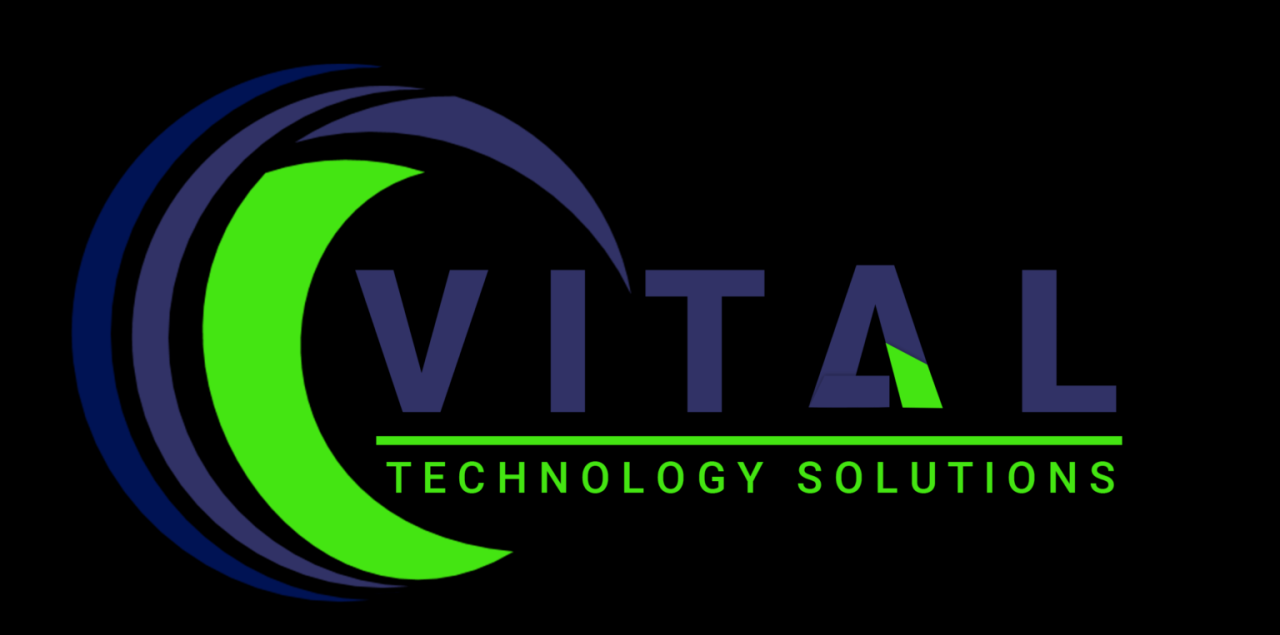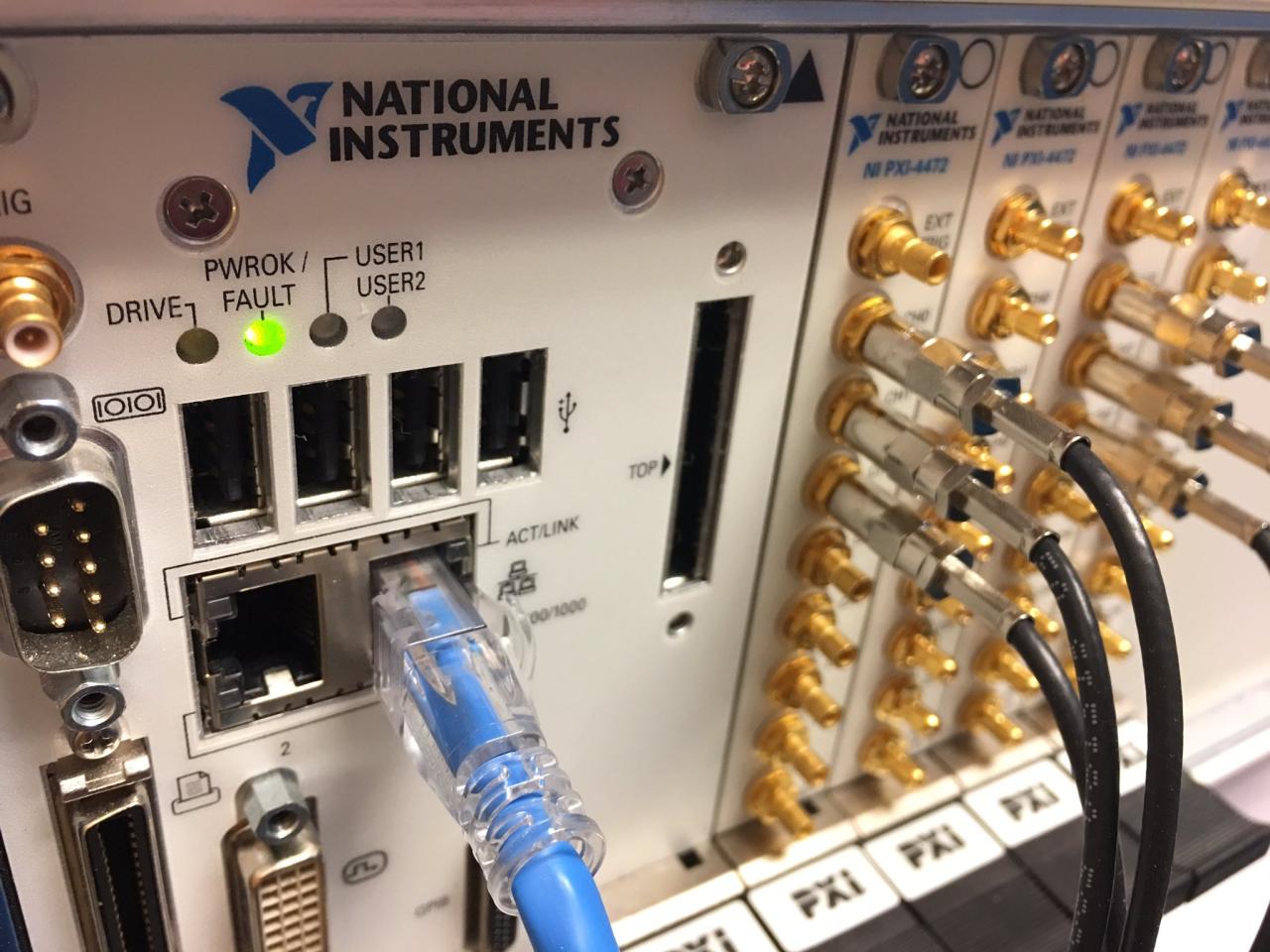What Can I Do with a Masters in Information Technology?
What can I do with a Masters in Information Technology? This question often arises in the minds of aspiring IT professionals and those seeking to advance their careers. An IT […]

What can I do with a Masters in Information Technology? This question often arises in the minds of aspiring IT professionals and those seeking to advance their careers. An IT master’s degree opens doors to a wide range of exciting and lucrative career paths, equipping individuals with the advanced knowledge and skills necessary to thrive in the ever-evolving digital landscape.
From cybersecurity and data science to software engineering and network administration, specialized IT master’s degree programs cater to diverse interests and career aspirations. These programs provide in-depth knowledge and hands-on experience, preparing graduates to tackle complex technical challenges and lead innovation in various industries.
Specialized IT Master’s Degree Programs

A Master of Science in Information Technology (MSIT) is a graduate degree that provides advanced knowledge and skills in various IT disciplines. While a general MSIT degree offers a broad overview, specialized IT master’s degree programs cater to specific areas within the IT field, allowing you to delve deeper into a particular area of interest and develop in-depth expertise.
Cybersecurity
A master’s degree in cybersecurity focuses on protecting computer systems and networks from cyber threats. This specialization equips individuals with the skills and knowledge to analyze vulnerabilities, design security protocols, implement security measures, and respond to cyberattacks.
- Key skills: Risk assessment, penetration testing, incident response, cryptography, ethical hacking, network security, data security, cloud security, and compliance regulations.
- Potential career paths: Cybersecurity analyst, security engineer, penetration tester, security architect, chief information security officer (CISO).
A cybersecurity master’s degree can lead to lucrative career opportunities in a rapidly growing field, especially with the increasing prevalence of cyberattacks and data breaches.
Data Science
A master’s degree in data science focuses on extracting meaningful insights from large datasets using statistical techniques, machine learning algorithms, and data visualization tools. This specialization is highly sought after in various industries, as organizations increasingly rely on data-driven decision-making.
- Key skills: Data mining, statistical analysis, machine learning, data visualization, programming languages (Python, R), big data technologies (Hadoop, Spark), data warehousing, and data ethics.
- Potential career paths: Data scientist, data analyst, machine learning engineer, data engineer, business intelligence analyst, data architect.
A data science master’s degree can open doors to diverse industries, including finance, healthcare, marketing, and technology.
Software Engineering
A master’s degree in software engineering focuses on designing, developing, and maintaining software applications. This specialization involves a deep understanding of software development methodologies, programming languages, software design patterns, and software testing techniques.
- Key skills: Object-oriented programming, agile methodologies, software design principles, software testing, version control systems (Git), cloud computing platforms, and software architecture.
- Potential career paths: Software engineer, software developer, software architect, project manager, systems analyst, technical lead.
A software engineering master’s degree can lead to highly competitive and in-demand roles in the technology sector.
Network Administration
A master’s degree in network administration focuses on the design, implementation, and maintenance of computer networks. This specialization equips individuals with the skills and knowledge to manage network infrastructure, troubleshoot network problems, and ensure network security.
- Key skills: Network protocols (TCP/IP, OSI model), routing and switching, network security, network monitoring, cloud networking, virtualization, and network management tools.
- Potential career paths: Network administrator, network engineer, systems administrator, network security specialist, cloud network architect.
A network administration master’s degree can open doors to career opportunities in various organizations, from small businesses to large enterprises, as networks are essential for modern business operations.
Skills and Knowledge Acquired
An IT master’s program equips graduates with a comprehensive set of skills and knowledge that are highly sought after in today’s technology-driven world. These programs go beyond the foundational principles of IT, delving deeper into advanced concepts and equipping students with the practical skills needed to excel in various IT roles.
The curriculum is designed to provide students with a solid understanding of the latest technologies, industry best practices, and the ability to solve complex IT challenges.
Technical Skills
The technical skills acquired in an IT master’s program are crucial for success in the field. These skills enable graduates to design, implement, and maintain complex IT systems.
Here are some of the core technical skills typically gained:
- Programming Languages: Master’s programs often focus on advanced programming languages such as Python, Java, C++, and JavaScript. These languages are essential for developing software applications, automating tasks, and building complex IT solutions.
- Database Management: Students learn how to design, implement, and manage databases using technologies like SQL, NoSQL, and cloud-based database services. Understanding database concepts is crucial for managing large datasets, ensuring data integrity, and supporting business intelligence applications.
- Network Security: With the increasing prevalence of cyber threats, IT professionals need a strong understanding of network security. Master’s programs cover topics like firewalls, intrusion detection systems, cryptography, and security protocols, enabling graduates to protect sensitive data and networks from attacks.
- Cloud Computing: Cloud technologies like AWS, Azure, and Google Cloud are transforming the IT landscape. Master’s programs often include courses on cloud computing, enabling graduates to design, deploy, and manage applications and infrastructure in the cloud.
- Data Analytics: The ability to analyze data is becoming increasingly important in all industries. Master’s programs often incorporate courses on data analytics, equipping graduates with skills in data visualization, statistical analysis, and machine learning.
Problem-Solving and Critical Thinking, What can i do with a masters in information technology
Master’s programs emphasize developing strong problem-solving and critical thinking skills. These abilities are essential for identifying and analyzing complex IT challenges, developing creative solutions, and implementing effective strategies.
Graduates learn to:
- Break down complex problems into smaller, manageable components: This allows them to tackle challenges systematically and efficiently.
- Identify and analyze potential solutions: They are able to evaluate different approaches and choose the most appropriate solution for a given situation.
- Apply critical thinking skills to assess risks and benefits: This enables them to make informed decisions and implement solutions that minimize risks and maximize outcomes.
Communication and Collaboration
Effective communication and collaboration are crucial in IT, where professionals often work in teams and need to communicate complex technical concepts to stakeholders.
Master’s programs emphasize developing these skills through:
- Project-based learning: Students work in teams on real-world projects, learning to communicate effectively, manage tasks, and collaborate effectively.
- Presentation skills: They learn to present technical information clearly and concisely to both technical and non-technical audiences.
- Written communication: They develop strong writing skills to document technical specifications, reports, and proposals.
Benefits of an IT Master’s Degree: What Can I Do With A Masters In Information Technology
An IT master’s degree can significantly enhance your career prospects and open doors to exciting opportunities in the ever-evolving tech industry. It equips you with advanced knowledge, skills, and credentials that are highly sought after by employers.
Increased Earning Potential
A master’s degree in IT can translate into a substantial increase in earning potential. According to the U.S. Bureau of Labor Statistics, professionals with a master’s degree in computer and information systems typically earn higher salaries than those with a bachelor’s degree. For example, the median annual salary for computer and information systems managers with a master’s degree is significantly higher than those with a bachelor’s degree.
Career Advancement Opportunities
An IT master’s degree can be a key factor in advancing your career. It demonstrates your commitment to professional development and your ability to handle complex technical challenges. Many organizations require a master’s degree for senior-level IT positions, such as Chief Technology Officer (CTO), Chief Information Officer (CIO), or senior software engineer.
Enhanced Problem-Solving Skills
An IT master’s degree program emphasizes critical thinking, analytical skills, and problem-solving abilities. You’ll learn advanced concepts and methodologies that equip you to tackle complex IT issues, design innovative solutions, and make informed decisions. This can be particularly valuable in roles that involve system design, network security, data analytics, or software development.
Professional Growth and Leadership Development
An IT master’s degree can foster your professional growth and leadership skills. You’ll gain a deeper understanding of IT trends, best practices, and industry standards. Additionally, the program often includes coursework on project management, leadership, and communication, which are essential for leading teams and managing complex IT projects.
Industry Trends and Future Outlook
The IT industry is constantly evolving, driven by technological advancements and changing user demands. Understanding these trends is crucial for IT professionals seeking to remain competitive and secure lucrative career opportunities. This section delves into the key industry trends shaping the future of IT and their implications for professionals with a master’s degree.
Emerging Trends in the IT Industry
Emerging trends in the IT industry are transforming the way businesses operate and how technology is used. These trends present both challenges and opportunities for IT professionals.
- Artificial Intelligence (AI) and Machine Learning (ML): AI and ML are rapidly transforming various industries, automating tasks, improving decision-making, and enhancing customer experiences. This trend creates a high demand for IT professionals with expertise in AI and ML algorithms, data analysis, and model development.
- Cloud Computing: Cloud computing has become the dominant model for IT infrastructure, offering scalability, flexibility, and cost-effectiveness. Professionals skilled in cloud technologies, such as AWS, Azure, and Google Cloud, are in high demand to manage, secure, and optimize cloud environments.
- Cybersecurity: As cyber threats become increasingly sophisticated, the demand for cybersecurity professionals is soaring. IT professionals with expertise in cybersecurity principles, threat detection, incident response, and data protection are crucial for safeguarding organizations from cyberattacks.
- Internet of Things (IoT): The proliferation of connected devices is driving the growth of IoT, creating new opportunities for IT professionals in areas such as device management, data analytics, and security. Professionals with knowledge of IoT protocols, data processing, and network management are in high demand.
- Big Data and Analytics: The exponential growth of data requires specialized skills to analyze, interpret, and derive insights from massive datasets. Professionals with expertise in big data technologies, data mining, and data visualization are crucial for organizations seeking to leverage data for informed decision-making.
Future Outlook for IT Careers
The future of IT careers is bright, with strong demand for skilled professionals across various industries. The increasing adoption of technology, the rise of digital transformation initiatives, and the ongoing need for cybersecurity are driving growth in the IT sector.
- Growing Demand for Skilled Professionals: The demand for IT professionals is expected to continue growing in the coming years, driven by the increasing reliance on technology across industries. Organizations are actively seeking professionals with specialized skills in emerging technologies such as AI, cloud computing, and cybersecurity.
- High-Paying Jobs: IT careers are known for their high salaries and lucrative compensation packages. Professionals with advanced degrees and specialized skills can command premium salaries and enjoy competitive benefits.
- Career Advancement Opportunities: An IT master’s degree can open doors to leadership roles, senior management positions, and specialized career paths. Professionals with advanced skills and knowledge are well-positioned for career advancement and leadership opportunities.
Industry Trends and Their Implications for IT Professionals with a Master’s Degree
| Industry Trend | Implications for IT Professionals with a Master’s Degree |
|---|---|
| Artificial Intelligence (AI) and Machine Learning (ML) | Opportunities in AI/ML development, data science, and machine learning engineering roles. |
| Cloud Computing | Demand for cloud architects, cloud engineers, and cloud security specialists. |
| Cybersecurity | Opportunities in cybersecurity analysis, incident response, and penetration testing. |
| Internet of Things (IoT) | Demand for IoT developers, IoT security experts, and IoT data analysts. |
| Big Data and Analytics | Opportunities in big data engineering, data warehousing, and data visualization. |
Application and Admission Requirements

Gaining admission to an IT master’s program typically involves a comprehensive application process designed to evaluate your academic background, skills, and potential for success in the program. This process usually includes several key components.
Application Requirements
The application process typically requires the submission of several documents and materials, including:
- Completed Application Form: This form will gather basic personal information, academic history, and program preferences.
- Transcripts: Official transcripts from all undergraduate and graduate institutions attended, demonstrating your academic performance and course history.
- Statement of Purpose: A well-written essay that Artikels your academic and professional goals, your interest in the specific IT master’s program, and your reasons for pursuing graduate studies.
- Letters of Recommendation: Typically two to three letters from professors, employers, or other individuals who can attest to your academic abilities, work ethic, and potential for success in the program.
- Resume or Curriculum Vitae (CV): A detailed document outlining your work experience, skills, and relevant achievements.
- Standardized Test Scores: Some programs may require scores from standardized tests such as the Graduate Record Examination (GRE) or the Graduate Management Admission Test (GMAT), especially for programs with a strong business or management focus.
Admission Criteria
Admission decisions are typically based on a holistic review of your application materials, considering factors such as:
- Academic Performance: Your undergraduate GPA and the rigor of your coursework are important indicators of your academic abilities.
- Relevant Work Experience: Practical experience in IT or related fields can demonstrate your hands-on skills and professional maturity.
- Statement of Purpose: The clarity, coherence, and persuasiveness of your statement of purpose are essential in showcasing your motivation, goals, and fit with the program.
- Letters of Recommendation: Strong letters of recommendation can provide valuable insights into your character, work ethic, and potential for success.
- Standardized Test Scores: If required, standardized test scores can provide an objective measure of your analytical and problem-solving abilities.
Application Process Flowchart
The application process for an IT master’s program can be visualized as a flowchart, which provides a clear and sequential representation of the steps involved:
[Flowchart Illustration: A simple flowchart can be created to depict the application process, with steps like:
1. Application Submission: Include all required documents.
2. Application Review: Admission committee evaluates submitted materials.
3. Interview (Optional): Some programs may require an interview.
4. Decision: Acceptance, waitlist, or rejection.
5. Enrollment: Accepted candidates confirm enrollment and pay tuition fees.
]
Resources for Further Exploration
Your journey into the world of IT with a master’s degree doesn’t end with this guide. There’s a wealth of resources available to help you navigate the field, discover new opportunities, and stay ahead of the curve. This section provides a curated selection of online resources, professional organizations, and universities offering IT master’s programs, along with relevant articles, research papers, and industry reports.
Reputable Online Resources
The internet is a treasure trove of information, but finding reliable sources can be challenging. This list highlights some of the most trusted and informative online resources for IT professionals and aspiring master’s degree candidates.
- IEEE Spectrum: A leading publication covering advancements in technology, engineering, and science, offering in-depth articles, interviews, and research summaries. https://spectrum.ieee.org/
- ACM Communications: Published by the Association for Computing Machinery (ACM), this journal provides insightful articles on various IT topics, including software engineering, computer science, and artificial intelligence. https://cacm.acm.org/
- MIT Technology Review: A renowned source for breaking news and analysis on emerging technologies, offering expert insights into the future of IT. https://www.technologyreview.com/
- TechCrunch: A popular website covering the latest tech news, startup trends, and industry events, providing a valuable window into the dynamic world of IT. https://techcrunch.com/
Professional Organizations
Joining professional organizations is a great way to network with other IT professionals, stay updated on industry trends, and gain access to exclusive resources and benefits.
- Association for Computing Machinery (ACM): A global organization for computing professionals, offering professional development resources, conferences, and networking opportunities. https://www.acm.org/
- Institute of Electrical and Electronics Engineers (IEEE): A leading international organization for electrical and electronics engineers, encompassing a wide range of IT-related fields. https://www.ieee.org/
- Information Systems Audit and Control Association (ISACA): A global association for IT governance, risk, and cybersecurity professionals, offering certifications, training, and networking opportunities. https://www.isaca.org/
- Association for Information Systems (AIS): A professional association for information systems academics and practitioners, promoting research, education, and knowledge sharing. https://aisnet.org/
Universities Offering IT Master’s Programs
Choosing the right university for your IT master’s degree is crucial. Explore these renowned institutions known for their exceptional IT programs and research.
| University | Program Name | Description | Link |
|---|---|---|---|
| Massachusetts Institute of Technology (MIT) | Master of Engineering in Electrical Engineering and Computer Science (MEng) | A highly competitive program with a focus on cutting-edge research and innovation in IT. | https://www.eecs.mit.edu/academics/graduate-programs/master-of-engineering |
| Stanford University | Master of Science in Computer Science (MS) | A prestigious program with a strong emphasis on theoretical computer science and artificial intelligence. | https://cs.stanford.edu/academics/degrees/masters |
| Carnegie Mellon University | Master of Science in Information Technology (MSIT) | A comprehensive program that combines technical skills with business acumen, preparing graduates for leadership roles in IT. | https://www.heinz.cmu.edu/academics/degrees/masters-information-technology |
| University of California, Berkeley | Master of Engineering in Electrical Engineering and Computer Sciences (MEng) | A flexible program offering specialization tracks in various IT fields, including data science, cybersecurity, and robotics. | https://www.eecs.berkeley.edu/academics/graduate/degrees/master-of-engineering |
Relevant Articles, Research Papers, and Industry Reports
Staying informed about the latest trends and advancements in IT is essential for professional growth. This section provides links to insightful articles, research papers, and industry reports that delve deeper into the topic.
- “The Future of Work: Jobs, Skills, and Wage Stagnation” by McKinsey Global Institute: This report explores the impact of automation and artificial intelligence on the future of work, highlighting the importance of upskilling and reskilling in IT. https://www.mckinsey.com/featured-insights/future-of-work/the-future-of-work-jobs-skills-and-wage-stagnation
- “The Impact of Artificial Intelligence on the IT Industry” by Gartner: This research paper analyzes the transformative influence of AI on IT, covering areas like automation, cybersecurity, and data analytics. https://www.gartner.com/en/newsroom/press-releases/2023-01-09-gartner-predicts-artificial-intelligence-to-transform-it-and-create-new-opportunities-for-it-professionals
- “The Rise of the Data Scientist” by Harvard Business Review: This article highlights the growing demand for data scientists and the skills needed to succeed in this data-driven era. https://hbr.org/2012/10/data-scientist-the-sexiest-job-of-the-21st-century
Last Recap
In conclusion, pursuing a Masters in Information Technology is a strategic investment in one’s professional future. The advanced knowledge, specialized skills, and career advantages gained through such a degree open doors to a world of possibilities in the dynamic and ever-evolving IT industry. Whether you’re seeking a fulfilling career, increased earning potential, or a path to leadership, an IT master’s degree can empower you to make a significant impact in the digital world.
A Master’s in Information Technology opens doors to various exciting roles, including network administration, cybersecurity, and data analytics. One intriguing area is A&C technology , which focuses on automating business processes and optimizing efficiency. With a strong IT foundation, you could become a key player in implementing and managing these systems, ensuring seamless operations and driving growth for businesses.




